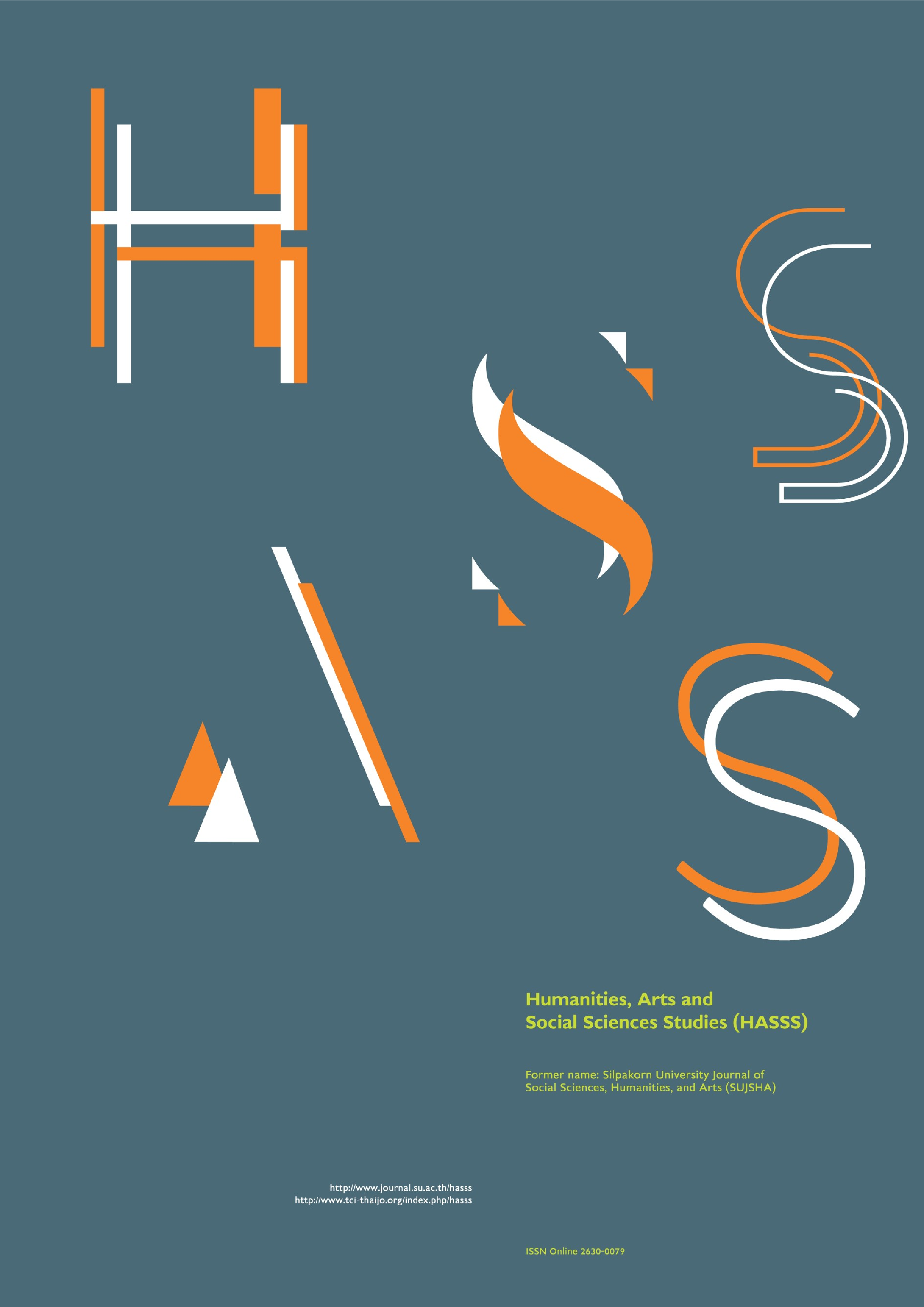Policy recommendations for workers returning to their hometowns: A case study of Phitsanulok province, Thailand
Main Article Content
Abstract
This article examines the socio-economic impacts and experiences of the workers who returned home in Phitsanulok province during the COVID-19 crisis in Thailand from 2021 to 2022. The study utilizes a mixed-methods approach, including quantitative research involving 385 workers returning home in nine districts of Phitsanulok province, as well as qualitative research through in-depth interviews with 18 workers. The analysis of the collected data incorporates the concepts of social mobility and public policy. The findings reveal that a significant proportion of the workers who returned home, mainly aged between 23–40 years, chose to return to their hometowns for a period exceeding 12 months. These individuals were primarily recent graduates and low-skilled workers employed in the service and industrial sectors. They mostly belonged to the lower middle class, with an average monthly income ranging from 5,000 to 10,000 baht. The study highlights the socio-economic impacts of the COVID-19 crisis, including income reduction, increased household debt, and a decline in overall quality of life. As a result, the research puts forth policy recommendations aimed at the state welfare policy, advocating for the establishment of an income welfare system, the promotion of local industry development to foster employment opportunities, the facilitation of reskilling and upskilling initiatives aligned with 21st-century occupations, and the decentralization of power to local authorities to enhance the quality of life and public services for the local population.
Downloads
Article Details

This work is licensed under a Creative Commons Attribution-NonCommercial-NoDerivatives 4.0 International License.
All rights reserved. Apart from citations for the purposes of research, private study, or criticism and review,no part of this publication may be reproduced, stored or transmitted in any other form without prior written permission by the publisher.
References
Anumanratchathon, M. (2006). Nayobai satharana [Public policy]. Thankamol Publishing. [in Thai]
Bank of Thailand. (2020). Naewkid kankaepanha nikruaruenthai [Concepts on solving Thai household debt problems]. https://app.bot.or.th/landscape/household-debt/concept/ [in Thai]
Chantaphong, S., & Sujjanitjakan, P. (2021). Kluenrang-ngan yaithin kab kanpraptua khong chumchon thongthin sang ngan lae sang mueng hai khemkhaeng nai lok new normal [Migrant labour waves and local community adaptation; the strengthening city creation in new normal world]. Bank of Thailand. https://www.bot.or.th/th/research-and-publications/articles-and-publications/articles/Article_25
May2021_2.html [in Thai]
Friesen, B. K. (2000). Book review: Sociology beyond societies: Mobilities for the twenty-first century. Humanity & Society, 24(4), 418–420. https://doi.org/10.1177/016059760002400410
Hou, P., Sriwichayangkul, K., & Nuanyai, P. (2022). Youth unemployment: Song talad rang-ngan dekchopmai yuk COVID 19 [Youth unemployment: A survey of young graduates’ labour market in the era of COVID-19]. Bank of Thailand. https://www.bot.or.th/th/research-and-publications/articles-and-publications/articles/regional-articles/reg-article-2022-05.html [in Thai]
Kaufmann, V., Bergman, M. M., & Joye, D. (2004). Motility: Mobility as capital. International Journal of Urban and Regional Research, 28(4), 745–756. https://doi.org/10.1111/j.0309-1317.2004.00549.x
Kitirianglarp, K. (2015). Chonnabot (poeng) plienpai?: Waduaipanha “chonnabot sueksa Thai” lang pi 2540 [Rural (just) changed?: On the problem of “Thai rural studies” after 1997]. Prachatai. https://www.prachatai.com/journal/2015/01/57459 [in Thai]
Knill, C., & Tosun, J. (2008). Policy making. In D. Caramani (Ed.), Comparative politics (pp. 495–519). Oxford University Press.
Kraft, M. E., & Furlong, S. R. (2020). Public policy: Politics, analysis, and alternatives (7th ed.). CQ Press.
Lekfuangfu, N., Piyapromdee, S., Porapakkarm, P., & Wasi, N. (2020). Mua COVID-19 pid mueng: Ponkratop to rang-nganthai nai miti supply-side [When COVID-19 shutdown city: The impacts to Thai labour in supply-side]. Puey Ungphakorn Institute for Economic Research. https://www.pier.or.th/abridged/2020/08/ [in Thai]
Sukkumnoed, D. (2004). Nayobai satharana pua sukkaphap: Naewkid khwamru lae kankluenwai [Public health policy: Concept, knowledge, and movement]. Health Systems Research Institute (HSRI). [in Thai]
Thailand National Statistical Office. (n.d.). Kansamruad ponkratop chak sathanakan kanpraerabad khong rokcovid 19 dansetthakit [A survey project on the impacts of COVID-19 pandemic]. http://ittdashboard.nso.go.th/covid19_report_eco.php [in Thai]
Thailand National Statistical Office. (2021). The 2021 migration survey. https://www.nso.go.th/nsoweb/nso/survey_detail/8e [in Thai]
Thamrongthanyawong, S. (2007). Nayobai satharana: Naewkhamkhid kanwikro lae krabuankan [Public policy: Concept, analysis and process] (16th ed.). Saematham. [in Thai]
Urry, J. (1999). Sociology beyond societies: Mobilities for the twenty-first century. Routledge.


